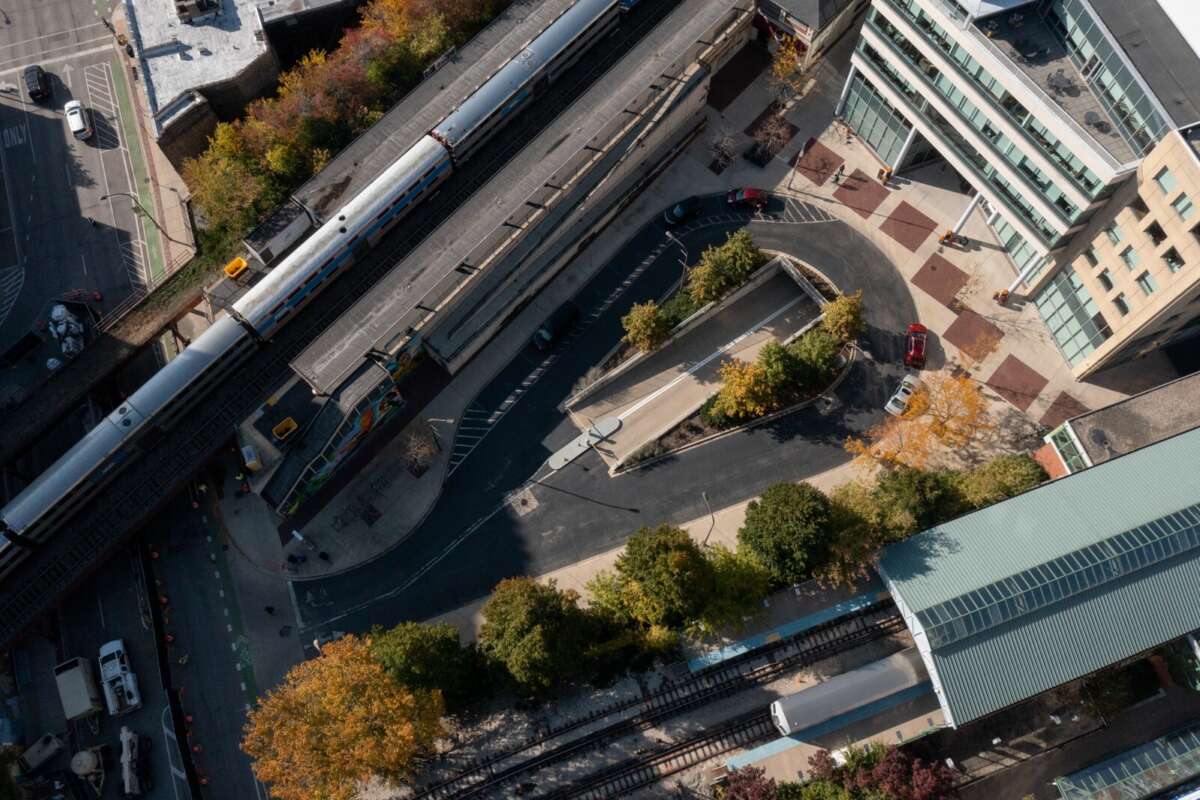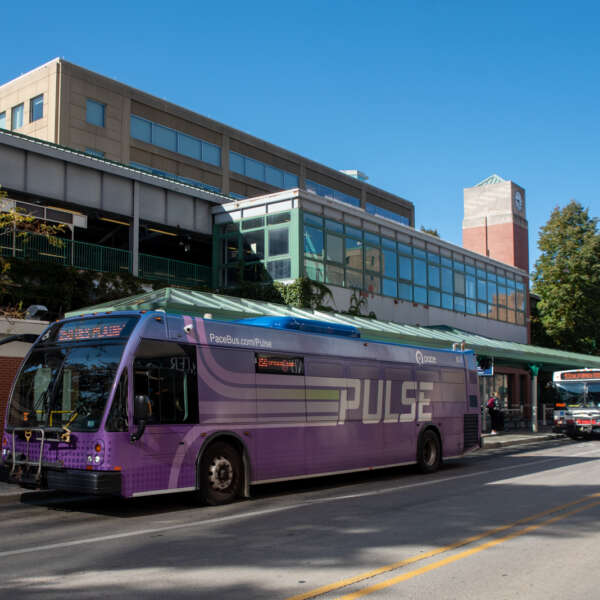RTA to create guide for local governments to enact transit-friendly policies
October 18, 2023
October 18, 2023

Transit can only be as strong as the surrounding built environment — or all the structures and developments that surround a transit station or stop — allows. A certain level of building density and transportation infrastructure is needed for transit to be useful for and well-used by riders. Put another way, areas with a sparse number of buildings, or buildings that all house one type of “use” like offices, or that have limited or poorly connecting sidewalks or roads are not likely to be able to support well-used transit stops or stations.
One advocacy item in Transit is the Answer, the RTA’s regional transit strategic plan, calls on the RTA to support communities’ efforts to improve the area around their transit stations and stops and pursue equitable transit-oriented development (eTOD). The RTA has begun work on a project that will help local governments to enact transit-friendly policies: Transit Friendly Communities: A Guide for Local Governments.
Encouraging transit-friendly policies and investment in walking and biking infrastructure for the more than 200 communities within the RTA region will help improve transportation for all, lower emissions, and is essential to growing ridership. Equitable transit-oriented development (eTOD) is development that enables all people to experience the benefits of dense, mixed-use, pedestrian-oriented buildings and spaces near transit. There is strong evidence that eTOD is particularly important in mitigating the negative effects of gentrification and the impact that unequal housing costs can have.
The RTA’s Community Planning and Access to Transit programs have helped local governments plan for pedestrian-friendly, sustainable communities near transit stations and along transit corridors where residents have access to multiple modes or ways of traveling including transit, biking, walking, and driving. The programs have also helped complete longer-term capital projects that make transit more accessible by foot and bike. Even with these programs, there is still work to be done across the region in continuing to maximize the value of transit and to make sure that there is equitable access to affordable housing near transit.
The RTA will engage partners to develop a regional planning document for communities that host existing or are planning for future transit services. The guide will provide useful tools and standards to help make development and land-use decisions that improve access to transit to ensure that riders and residents of those communities can travel safely and efficiently. The built environment, particularly density and land use, directly impact the level of transit services that can be sustained in a community or corridor. Transit access infrastructure, in the form of sidewalks, crosswalks, bike lanes or paths, and accessibility elements, such as curb ramps and audible pedestrian signal heads, are also instrumental in supporting all forms of transit service. However, decisions about how land is developed lay in the hands of local municipalities, not transit agencies.
This guide is meant to help local decision makers understand the connection between land use typologies — including densities, uses, and access infrastructure — and the range of transit services supported by those typologies. The guide will also provide insight on what transit services are available throughout the region. Recommendations will build off a similar guide completed in 2012, Setting the Stage for Transit, but revise and expand based on changes in the access, mobility, and land development landscape in the past 10+ years. This includes the prevalence of transportation network companies (TNCs) such as Uber and Lyft, micromobility options such as rentable scooters and bikes, and countywide dial-a-ride systems. Some areas of change that will be taken into consideration include:
Development of the Transit Friendly Communities Guide will be supported by a consultant overseen by RTA staff, with significant participation and oversight by a project Steering Committee comprised of representatives of transit agencies, roadway agencies, municipalities, private developers, advocates, and other regional governmental, non-profit, or community-based organizations. Additional outreach, potentially in the form of focus groups, specifically on project recommendations, will also supplement feedback from the project Steering Committee. Monetary compensation will be offered to Steering Committee members and those participating in stakeholder involvement activities.
The project will kick off by the end of 2023, with the final guide expected to be complete within one year.
Transit is the answer to many of the region’s challenges but is threatened by lack of sufficient operating and capital funding after years of disinvestment and a global pandemic. Our region’s current transit funding structure is also overly reliant on fares. Together this leaves our transit agencies to face an existential crisis that neither fare hikes nor service cuts can solve while preserving a useful and equitable system.
We need your help to win sustainable funding for transit and build a better system for everyone who relies on it. Join the Transit is the Answer Coalition to stay informed and advocate for transit.
Subscribe to our Newsletter
Related Articles
 2024 recap: RTA brings 8 Transit Station Activations throughout region as part of pilot program
2024 recap: RTA brings 8 Transit Station Activations throughout region as part of pilot program
In spring 2024, RTA announced more than $120,000 in funding for eight Transit Station Activation projects as part of a pilot program with the goal of improvi...
January 9, 2025 Village of La Grange adopts comprehensive plan calling for more density near transit
Village of La Grange adopts comprehensive plan calling for more density near transit
In November, the Village of La Grange voted to adopt La Grange Forward, a comprehensive plan developed as part of the RTA’s Community Planning program. The d...
January 7, 2025 Transit Station Activation on West Side brings historic home movies from the neighborhood to life
Transit Station Activation on West Side brings historic home movies from the neighborhood to life
In May, the RTA announced more than $120,000 in funding for eight Transit Station Activation pilot projects near CTA, Metra, and Pace stations and stops. The...
December 19, 2024 Voters overwhelmingly support transit nationally this election cycle
Voters overwhelmingly support transit nationally this election cycle
Voters across the nation were not only asked to choose their elected representatives this November, but in many states the future of their local transit syst...
November 21, 2024 State hearings show broad support for funding transit and increasing service across region
State hearings show broad support for funding transit and increasing service across region
Lawmakers, local leaders, and transit stakeholders from throughout the region recognize the extraordinary value of the transit system and the need for sustai...
November 21, 2024 Help shape the future of suburban transit: Take the Pace ReVision survey or attend an open house
Help shape the future of suburban transit: Take the Pace ReVision survey or attend an open house
This is a guest blog from Pace on a new initiative that aims to adapt transit service to meet the changing needs of riders—a key action item in the RTA’s reg...
November 18, 2024